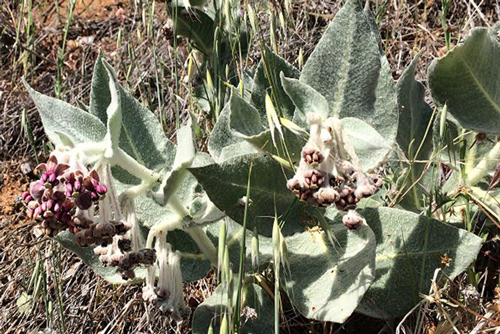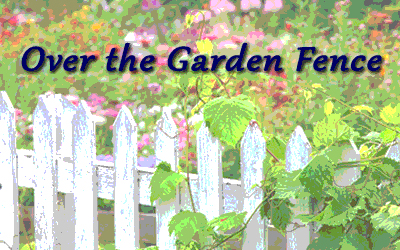 March 24, 2022 - By Ron Allen (UC Master Gardener, Mariposa County) - Have you seen a monarch butterfly in the last few years? Probably not. Or, not many at least. Despite the name of our county, we do not see too many of these big, beautiful, orange and black butterflies which we remember from our youth in the Mariposa area. Their population in western North America has plummeted. Indeed, last year, fewer than 2,000 individual monarchs--the indication of an extinction spiral underway--were reported at their overwintering grounds on the California coast.
March 24, 2022 - By Ron Allen (UC Master Gardener, Mariposa County) - Have you seen a monarch butterfly in the last few years? Probably not. Or, not many at least. Despite the name of our county, we do not see too many of these big, beautiful, orange and black butterflies which we remember from our youth in the Mariposa area. Their population in western North America has plummeted. Indeed, last year, fewer than 2,000 individual monarchs--the indication of an extinction spiral underway--were reported at their overwintering grounds on the California coast.
The reasons for the disappearance of monarchs are complex, but scientists point to reduced native milkweed habitat as a critical factor. Why? Monarch butterflies in northern California only lay their eggs on plants in the Asclepias genus of milkweeds. These milkweeds contain a white, sticky, latex sap that is actually toxic. The monarchs’ eggs hatch into caterpillars; the caterpillars consume the milkweed foliage, becoming toxic themselves; and, then, after pupating, the caterpillar becomes a toxic butterfly. The bright colors of the caterpillar and the butterfly it becomes signal to potential predators: Don’t eat me, because I’m nasty! (Think of a skunk or a coral snake.)
There has been some encouraging news this year, however. The population count of overwintering monarchs at the California coast came in at over 200,000 individuals. But, again, more needs to be done, because this butterfly’s population once numbered in the millions.
To help restore the monarch butterfly population, there are several things you can do. First, learn to recognize the common local milkweeds upon which the butterfly caterpillars depend (photos): Narrowleaf, Showy, Heartleaf (Purple), and California Milkweeds. Next, try to avoid weed whacking these plants during your summer clean-up. They are very deep-rooted and are not a fire threat even into late summer. Third, establish milkweed habitat. Native plant nurseries can provide you with directions, seeds, and appropriate plants. Finally, if you have livestock, then the animals won’t eat these plants as long as they have other adequate forage. There is no need to remove native milkweeds from a pasture. I have personally witnessed cattle grazing within a large patch of Showy Milkweed, touching none of these plants, and gingerly stepping around them to get to surrounding grasses.
Milkweeds native to Mariposa County (pictured top to bottom): Narrowleaf, Showy, California, and Heartleaf Milkweeds. Photo credits: Ron Allen and Ted Barnecut 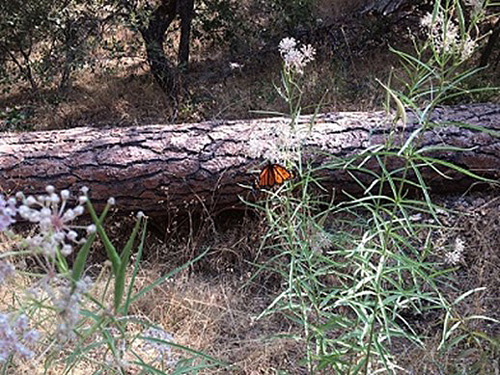
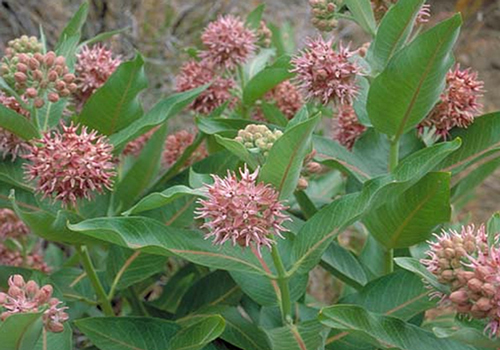
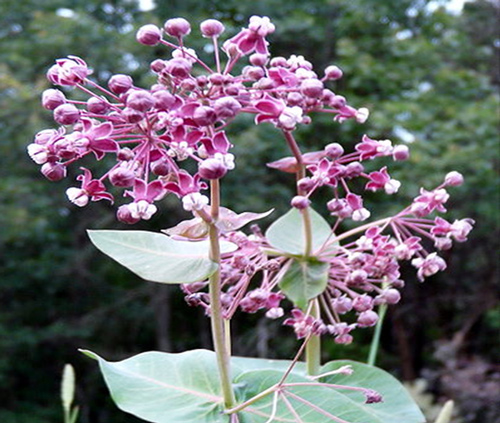
For assistance, contact our Helpline at (209) 966-7078 or at mgmariposa@ucdavis.edu. We are currently unable to take samples or meet with you in person but welcome pictures.
The U.C. Master Gardener Helpline is staffed; Tuesdays from 9:00 A.M. - 12:00 P.M. and Thursdays from 2:00 P.M. - 5:00 P.M.
Clients may bring samples to the Agricultural Extension Office located at the Mariposa Fairgrounds, but the Master Gardener office is not open to the public. We will not be doing home visits this year due to UCANR restrictions.
Serving Mariposa County, including Greeley Hill, Coulterville, and Don Pedro
Please contact the helpline, or leave a message by phone at: (209) 966-7078
By email (send photos and questions for researched answers) to: mgmariposa@ucdavis.edu
For further gardening information and event announcements, please visit: UCMG website: http://cemariposa.ucanr.edu/Master_Gardener
Follow us on Facebook at: https://www.facebook.com/mariposamastergardeners
Master Gardener Office Location:
UC Cooperative Extension Office,
5009 Fairgrounds Road
Mariposa, CA 95338
Phone: (209) 966-2417
Email: mgmariposa@ucdavis.edu
Website: http://cemariposa.ucanr.edu/Master_Gardener
Visit the YouTube channel at UCCE Mariposa.







